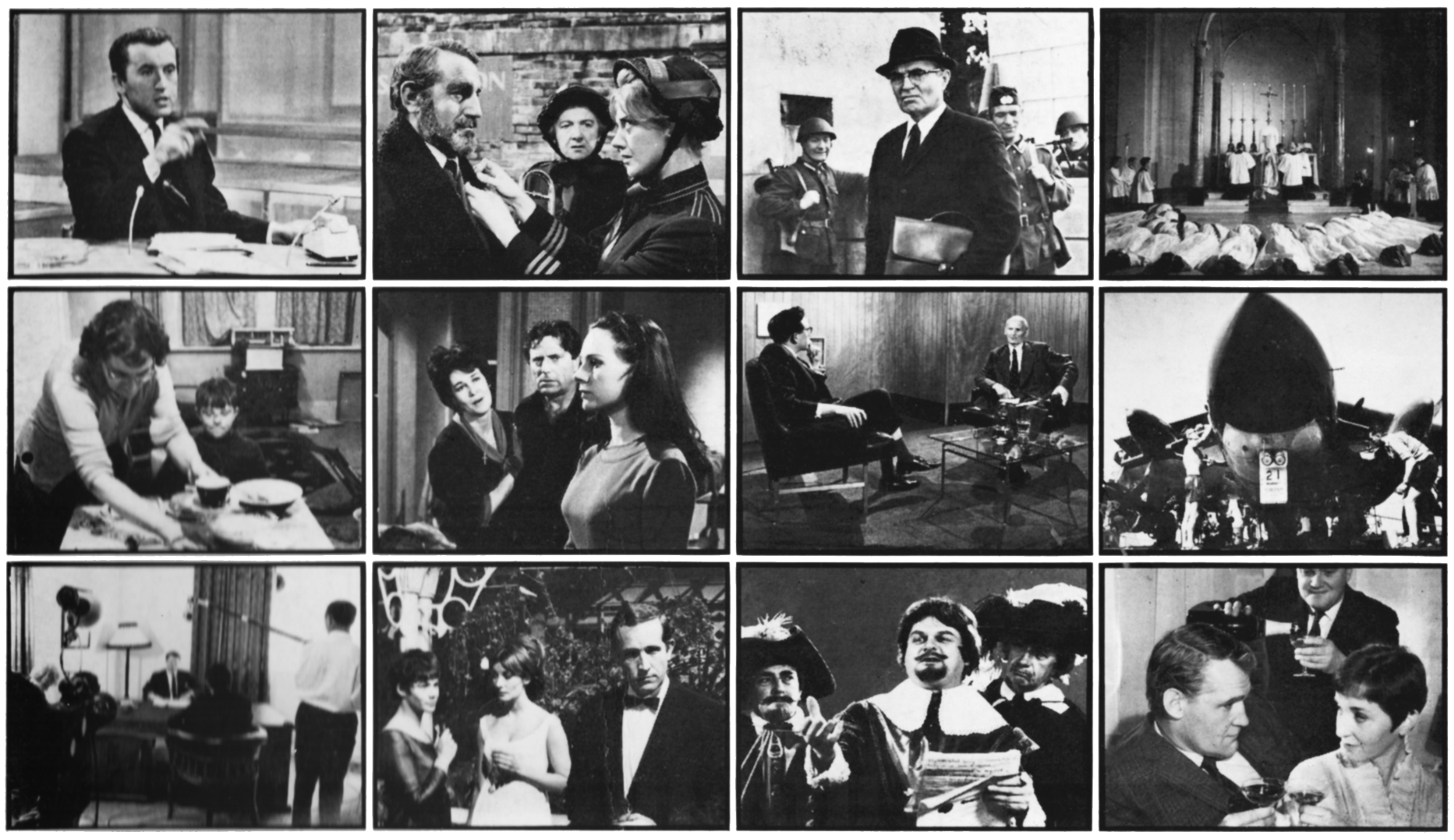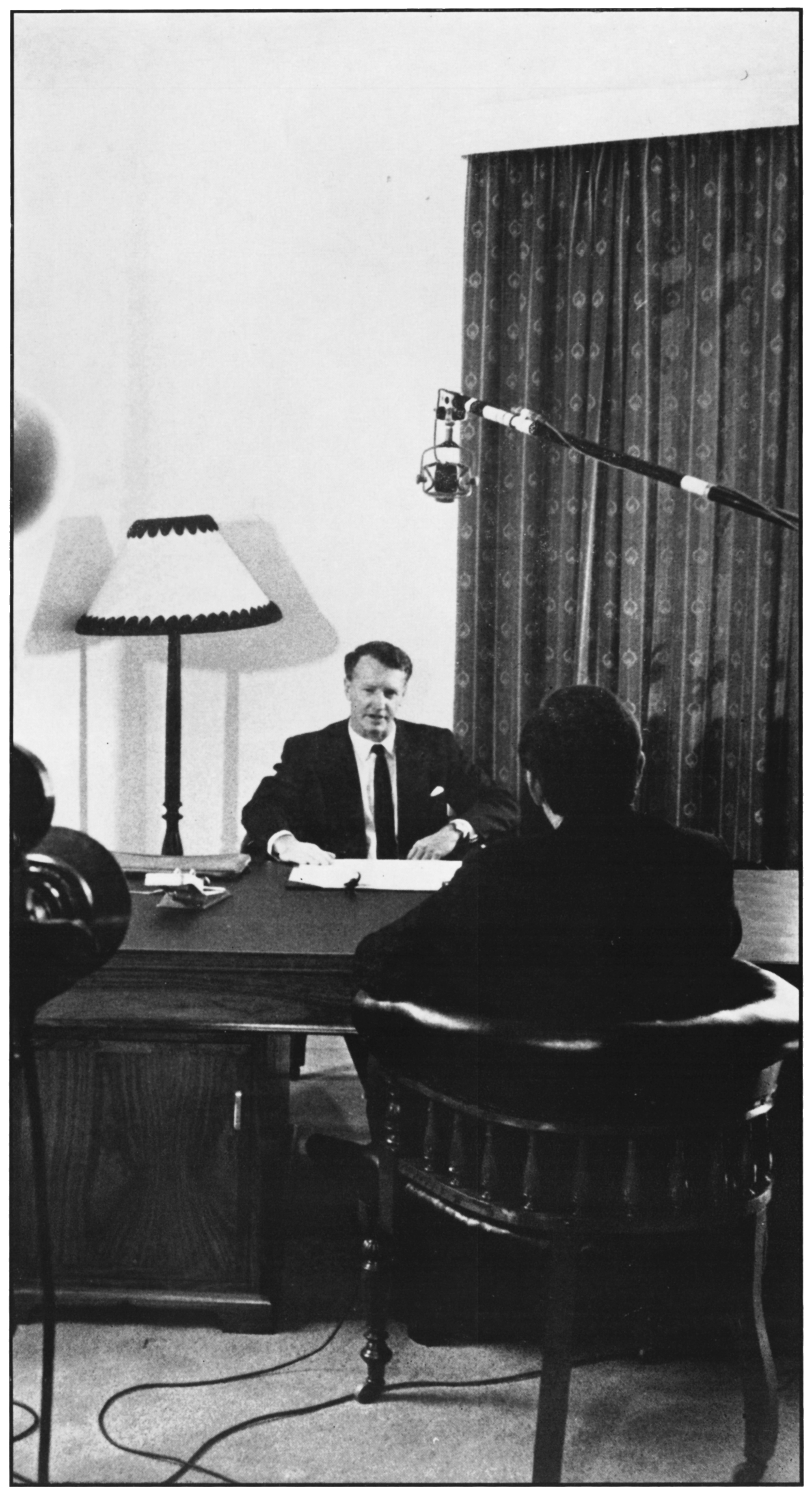Highlights of 1966

Rediffusion Television is required by the Independent Television Authority to produce a “balanced” schedule of programmes. Happily this precisely accords with Rediffusion’s programme philosophy because such a concept of public service broadcasting can never be precisely legislated.
A “balanced” schedule means, firstly, making only one assumption about the television audience—that it is a demanding, perceptive and alert community of individuals who will switch over, or switch off, if its diverse tastes for entertainment and information are not satisfied.
It means not making a value judgement on something called “popular taste”, recognising that what some will think corny, low-brow and worthless, others will find diverting and enjoyable; programmes which some will think dull and uninteresting others will find stimulating and informative. It means, among other things, not expecting to satisfy every viewer during every consecutive hour of transmission. The idea of a passive “mass audience” timidly watching every programme fundamentally underrates the viewer and is contrary to all research evidence. The only viable criteria can be whether or not a programme meets its own objectives, whether or not it is true or bogus in its own terms, whether or not it is capable of growth and development.
In 1966, as it has for the past 11 years, Rediffusion Television put this philosophy into action. In some 50 hours of broadcasting from Monday to Friday it transmitted a range of programmes from which the viewer was invited to make a choice. It offered a view from the bridge and no hiding place; double your money and the frost programme; hippodrome and betjeman at random; the f.b.i. and major barbara; take your pick and this week; the beverley hillbillies and warship eagle; the informer and ready, steady, go! blackmail, and a wide range of drama, documentaries, sport, quiz programmes, plays, music programmes, current affairs interviews and discussions, adventure series. In fact, a “balanced” schedule of programmes.
This is the time to look back on 1966. On this site you will find some of the television programmes we recall with most pleasure and some of the favourable comments of the critics.
We have listed, for your guidance, all Rediffusion programmes of 1966. We do not claim that all have been successful; if they were we should have found the secret that has eluded every novelist, every film maker, every playwright and actor and composer, every creative television professional who started off with an idea that must ultimately be offered to an audience.
What we do claim, and there are some research tables to support it, is a good record both in providing the television viewers with what they wanted and in offering what they didn’t think they would want but came to appreciate.



